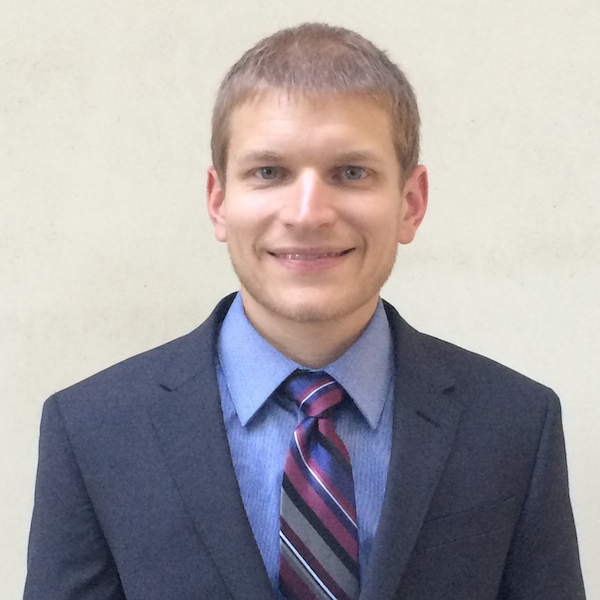Spring 2026 funding cycle: Applications available until Monday, March 2nd, 2pm PT.
- Call opens: Wednesday, January 28, 2026
- Deadline: Monday, March 2, 2026 (2:00 pm PST)
- Funding results: Available before end of June 2026
Amount available: $50,000 in direct costs for 1 year
Apply through the UCSF Resource Allocation Program (RAP) portal
The CFAR Mentored Scientist Award (our primary award program) is a mentoring and training grant targeted toward early stage (either at a senior stage of clinical or postdoctoral training or junior faculty) investigators at UCSF or affiliated partner institutes in the conduct of an HIV research project. These awards are designed to acquire preliminary data and research skills to prepare investigators for a future grant effort. Applicants for this award must indicate a faculty research mentor(s) who will commit to guiding the applicant throughout the duration of the proposed project.
Designation of Mentor
All Mentored award applications from individuals at the Assistant Professor level or below require an HIV research mentor. Mentors can, but are not required to, have supervisory authority over the applicant. CFAR requires your research mentor’s support to advise and guide the research portion of your application before submitting it to RAP.
Of high interest to CFAR are investigations ranging from basic pathogenesis to clinical outcomes in the research areas of HIV/aging and inflammation, latency, cure, vaccines, co-infections, HIV in women, implementation science, and research related to HIV-infected and HIV-impacted Bay Area populations. Projects must be within NIH’s HIV/AIDS research high or medium priority areas. Projects in closely related areas (e.g. TB, HCV, drug use, etc.) must be clearly linked to HIV in order to be eligible for CFAR funding.
The award amount is $50,000 in direct costs for one year.
CFAR requests that applicants review the NIAID HIV Language Guide as they prepare their proposals so that they can follow best practices on language for communicating respectfully about HIV and related topics, including the use of person-first, non-stigmatizing language. Please contact us if you have any questions about this request.
For more detailed information about this RFA, please see the RAP Portal.
To see examples of previously funded projects, see the list below.
Mentored Science Awardees
135 Awards
-
Application of quantitative intersectionality methods to identify the most vulnerable populations in the HIV continuum of care
Application of quantitative intersectionality methods to identify the most vulnerable populations in the HIV continuum of care

Abstract
People with severe mental illness (e.g., schizophrenia, bipolar disorder; SMI) are a socially marginalized population with up to ten times increased likelihood of being diagnosed with HIV compared to the general US population. The parent grant (R01-MH112420) aims to investigate the increased HIV transmission risk, low testing rate, and potential HIV treatment gaps for people with SMI using a large, geographically diverse national retrospective longitudinal Medicaid cohort.
-
Application of quantitative intersectionality methods to identify the most vulnerable populations in the HIV continuum of care
Application of quantitative intersectionality methods to identify the most vulnerable populations in the HIV continuum of care

Abstract
People with severe mental illness (e.g., schizophrenia, bipolar disorder; SMI) are a socially marginalized population with up to ten times increased likelihood of being diagnosed with HIV compared to the general US population. The parent grant (R01-MH112420) aims to investigate the increased HIV transmission risk, low testing rate, and potential HIV treatment gaps for people with SMI using a large, geographically diverse national retrospective longitudinal Medicaid cohort.
-
Weight gain and metabolic consequences of switch to dolutegravir in Western Kenya
Weight gain and metabolic consequences of switch to dolutegravir in Western Kenya

Abstract
Dolutegravir was recently recommended as a component of first-line antiretroviral therapy (ART) for all adults living with HIV by the World Health Organization due to improved efficacy and tolerability over prior regimens. However, recent studies, including two randomized trials in sub-Saharan Africa, have shown significant weight gain associated with dolutegravir among ART-naïve patients newly initiating dolutegravir. It is not known whether switch to dolutegravir among ART-experienced patients will result in similar weight gain.
-
Weight gain and metabolic consequences of switch to dolutegravir in Western Kenya
Weight gain and metabolic consequences of switch to dolutegravir in Western Kenya

Abstract
Dolutegravir was recently recommended as a component of first-line antiretroviral therapy (ART) for all adults living with HIV by the World Health Organization due to improved efficacy and tolerability over prior regimens. However, recent studies, including two randomized trials in sub-Saharan Africa, have shown significant weight gain associated with dolutegravir among ART-naïve patients newly initiating dolutegravir. It is not known whether switch to dolutegravir among ART-experienced patients will result in similar weight gain.
-
Potent Anti-HIV Gene Editing in Primary Myeloid Cells using CRISPR-Cas9 Technology
Potent Anti-HIV Gene Editing in Primary Myeloid Cells using CRISPR-Cas9 Technology

Abstract
Although HIV eradication efforts have mainly focused on latently-infected CD4+ T cells, myeloid cells harbor virus during suppressive antiretroviral therapy and participate in HIV dissemination and persistence. Infection of monocytes and macrophages contributes to inflammation and HIV-associated neurocognitive disorder (HAND). CRISPR/Cas9-mediated anti-HIV gene editing has been applied to excise HIV provirus and knock out the CXCR4 and CCR5 HIV co-receptors in CD4+ T cells as a cure approach. However, anti-HIV gene editing in the myeloid compartment has not been reported as yet. -
Potent Anti-HIV Gene Editing in Primary Myeloid Cells using CRISPR-Cas9 Technology
Potent Anti-HIV Gene Editing in Primary Myeloid Cells using CRISPR-Cas9 Technology

Abstract
Although HIV eradication efforts have mainly focused on latently-infected CD4+ T cells, myeloid cells harbor virus during suppressive antiretroviral therapy and participate in HIV dissemination and persistence. Infection of monocytes and macrophages contributes to inflammation and HIV-associated neurocognitive disorder (HAND). CRISPR/Cas9-mediated anti-HIV gene editing has been applied to excise HIV provirus and knock out the CXCR4 and CCR5 HIV co-receptors in CD4+ T cells as a cure approach. However, anti-HIV gene editing in the myeloid compartment has not been reported as yet. -
Assessing CSF HIV antibodies and CNS HIV viral reservoirs in HIV-Associated Neurocognitive Disorder (HAND)
Assessing CSF HIV antibodies and CNS HIV viral reservoirs in HIV-Associated Neurocognitive Disorder (HAND)

Abstract
Levels of cerebrospinal fluid (CSF) HIV antibodies are theorized as a broad marker of central nervous system (CNS) HIV reservoir size. In the proposed work, I will determine CSF HIV antibody levels and their antigenic targets in virally suppressed HIV+ elders with (n=30) and without (n=15) HIV-associated neurocognitive disorder (HAND).
-
Assessing CSF HIV antibodies and CNS HIV viral reservoirs in HIV-Associated Neurocognitive Disorder (HAND)
Assessing CSF HIV antibodies and CNS HIV viral reservoirs in HIV-Associated Neurocognitive Disorder (HAND)

Abstract
Levels of cerebrospinal fluid (CSF) HIV antibodies are theorized as a broad marker of central nervous system (CNS) HIV reservoir size. In the proposed work, I will determine CSF HIV antibody levels and their antigenic targets in virally suppressed HIV+ elders with (n=30) and without (n=15) HIV-associated neurocognitive disorder (HAND).
-
Surface engineering of exosomes to specifically bind and kill HIV-infected cells
Surface engineering of exosomes to specifically bind and kill HIV-infected cells

Abstract
The current limitations of antiretroviral therapy is driving interest in alternative therapeutics which fully resolve inflammation and achieve complete eradication of HIV latently-infected cells. Exosomes are nano-sized membrane vesicles and key players of intercellular signaling. Interestingly, exosomes have shown promise as engineerable therapeutic agents for a broad range of diseases. The objective of this grant is to surface engineer exosomes ex vivo using surface display technology and pack the decorated exosomes with cytotoxic cargo.
-
Surface engineering of exosomes to specifically bind and kill HIV-infected cells
Surface engineering of exosomes to specifically bind and kill HIV-infected cells

Abstract
The current limitations of antiretroviral therapy is driving interest in alternative therapeutics which fully resolve inflammation and achieve complete eradication of HIV latently-infected cells. Exosomes are nano-sized membrane vesicles and key players of intercellular signaling. Interestingly, exosomes have shown promise as engineerable therapeutic agents for a broad range of diseases. The objective of this grant is to surface engineer exosomes ex vivo using surface display technology and pack the decorated exosomes with cytotoxic cargo.

